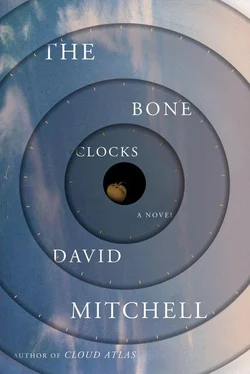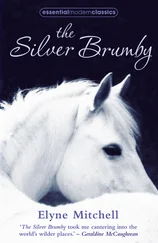On our way to the BritFone Pavilion, we pass the smoking tent, sponsored by Win 2Win: Europe’s premier facilitator of ethically sourced organs for medical transplant. I tell my minders I’ll be along soon, and although Editor Oliver offers to join me I warn him there’s a two-hundred-pound fine for nonsmokers who don’t light up, and he takes the hint. Publicity Girl checks mumsily that I have my lanyard for getting past the bouncers.
I produce the plastic tag I refuse to wear around my neck. “If I get lost,” I tell her, “I’ll just follow the sound of knives sinking into vertebrae.” Inside the Win 2Win tent, fellow initiates of the Order of Nicotine sit on barstools chatting, reading, or gazing hollow-eyed at smartphones, fingers busy. We are relics from the days when smoking in cinemas, airplanes, and trains was the natural order; when the Hollywood hero was identified by his cigarette. Nowadays not even the villains smoke. Now smoking really is an expression of the rebel spirit — it’s virtually sodding illegal! Yet what are we without our addictions? Insipid. Flavorless. Careerless! Dad was addicted to the hurly-burly of getting a film made. Zoë’s addictions are fad diets, one-sided comparisons between London and Montreal, and obsessing over Juno and Anaïs’s vitamin intake.
I light up, fumigate my alveolar sacs, and think dark thoughts about Richard Cheeseman. Someone needs to skewer his reputation; jeopardize his livelihood; see if he shrugs it off with an “I bloody well won’t let it spoil my lunch.” When I stub out my cigarette, I imagine it’s into Cheeseman’s fatuous eye.
“Mr. Hershey?” A short fat boy in glasses and a maroon Burberry jacket interrupts my revenge fantasy. His head is shaved and he’s doughy and ill-looking, like Piggy in Lord of the Flies .
“My signing session’s over. I’ll be back in about five years.”
“No, I wish to give you a book.” The boy is a girl, with a soft American accent. She’s Asian American, or semi — Asian American.
“And I wish to smoke. It’s been a most exhausting few years.”
Ignoring the hint, the girl proffers a thin volume. “My poetry.” A self-funded volume, plainly. “ Soul Carnivores , by Soleil Moore.”
“I don’t look at unsolicited manuscripts.”
“Humanity asks you to make an exception.”
“ Please don’t think me rude, Miss Moore, but I’d rather perform root-canal surgery on myself, or wake up next to Aphra Booth in the breeding pen of an alien menagerie, or take six shots in the heart at close range than ever read your poems. Do you understand?”
Soleil Moore flaunts her lunatic’s credentials by staying calm. “Nobody wanted William Blake’s work, either.”
“William Blake had the merit of being William Blake.”
“Mr. Hershey, if you don’t read this and act, you’ll be complicit in animacide.” She places Soul Carnivores by the ashtray, wanting me to ask what that made-up word means. “You’re in the Script,” she says, as if that settles everything, before finally buggering off, as if she’s just delivered a killer argument. I take a few more puffs, sifting a conversation nearby: “She said, ‘Hershey’: I thought it was him”; “Nah, can’t be, Crispin Hershey’s not that old”; “Ask him”; “No, you ask him.” Cover blown, I crumple up my death-stick and flee my smoker’s Eden.
THE BRITFONE PAVILION was designed by an eminent architect I’ve never heard of and “quotes” Hadrian’s Wall, the Tower of London, a Tudor manor, postwar public housing, Wembley Stadium, and a Docklands skyscraper. What a sicked-up fry-up it is. A holographic flag of the BritNet logo flutters from its pinnacle and you ingress through a double-sized replica of 10 Downing Street’s famous black door. The security men are dressed as Beefeaters, and one asks for my VIP lanyard. I check my jacket; my trousers; my jacket again. “Oh, sod a dog, I put it down somewhere — look, I’m Crispin Hershey.”
“Sorry, sir,” says the Beefeater. “No ID, no entry.”
“Check your little list. Crispin Hershey. The writer.”
The Beefeater shakes his head. “I got my orders.”
“But I did a sodding event here only an hour ago.”
A second Beefeater comes over, eyes ashine with fan-glow: “You’re never — are you really … him ? Oh, my God, you are … ”
“Yes, I am .” I glare at the first. “ Thank you.”
The Worthy Beefeater walks me through the small lobby where lesser mortals are patted down and have their bags checked. “Sorry about that, sir. The Afghan president’s here tonight so we’re on amber alert. My colleague back there’s not au fait with contemporary fiction. And, to be fair, you do look older on your author photos.”
I double-check this pleasing sentence. “Do I?”
“If I weren’t such a fan, sir, I wouldn’t have recognized you.” We enter the pavilion proper, where hundreds are mingling, but the Worthy Beefeater has a favor to beg: “Look, sir, I shouldn’t ask, but …” he produces a book from inside his ridiculous uniform, “… your new book’s the best thing you’ve ever written. I went to bed with it and read right through to dawn . My fiancée’s mother’s a huge fan too, and, well, for premarital Brownie points, would you mind?”
I produce my fountain pen and the Beefeater hands me his book, already turned to the title page. Only when nib touches paper do I notice I am signing a novel called Best Kept Secret by Jeffrey Archer. I look up at the Beefeater to see if he’s taking the piss, but no: “Would you write ‘To Bridie on your Sixtieth Birthday from Lord Archer’?”
A famous columnist from The Times is standing three feet away.
Dedication written, I tell the bouncer, “So glad you enjoyed it.”
The pavilion contains enough celebrity wattage to power a small sun: I spy two Rolling Stones, a Monty Python; a teenage fifty-something presenter of Top Gear joshing with a disgraced American cyclist; an ex — U.S. secretary of state; an ex — football manager who writes an autobiography every five years; an ex-head of MI6 who cranks out a third-rate thriller annually; and a lush-lipped TV astronomer who writes, at least, about astronomy. We’re all here for the same reason: We have books to flog. “I spy with my little eye the rarest of sights,” an old codger purrs in my ear by the champagne bar, “a literary writer at a literary festival. How’s life, Crispin?”
The stranger absorbs Hershey’s withering stare like a man in his prime with nothing to fear, notwithstanding the damage that Time the Vandal has done to his face. The clawed lines, the whisky nose, the sagging pouches, the droopy eyelids. A silk handkerchief pokes up from his jacket pocket and he wears an elegant fedora, but Sodding Hell. How can the incurably elderly stand it? “And you are?”
“I’m your near future, my boy.” He swivels his once-handsome face. “Take a good, long look. What do you think?”
What I think is that tonight is the Night of the Fruitcakes. “What I think is that I’m no fan of cryptic crosswords.”
“No? I enjoy them. I am Levon Frankland.”
I take the proffered champagne flute and make an underimpressed face. “No bells are going ‘dong,’ I must confess.”
“I’m an old mucker of your father’s from another time. We were both contemporaries at the Finisterre Club in Soho.”
I maintain my underimpressed face. “I heard it finally closed down.”
“The end of the end of an era. My era. We met,” Levon Frankland tilts his glass my way, “at a party at your house in Pembridge Place in, ooh, sixty-eight, sixty-nine, around the time of the Gethsemane jazzamaroo. Amongst the various pies into which I had thrust my sticky fingers was artist management, and your father hoped that an avant-folk combo I represented would work on music for The Narrow Road to the Deep North . The plan came to nought, but I remember you, dressed up as a cowboy. You had not long mastered the art of bowel control and social intercourse was still years away, but I’ve followed your career with an avuncular interest, and read your memoir about your dad with relish. Do you know, every few months, I get it into my head to call him and arrange lunch? I clean forget he’s gone! I do so miss the old contrarian. He was sinfully proud of you.”
Читать дальше












